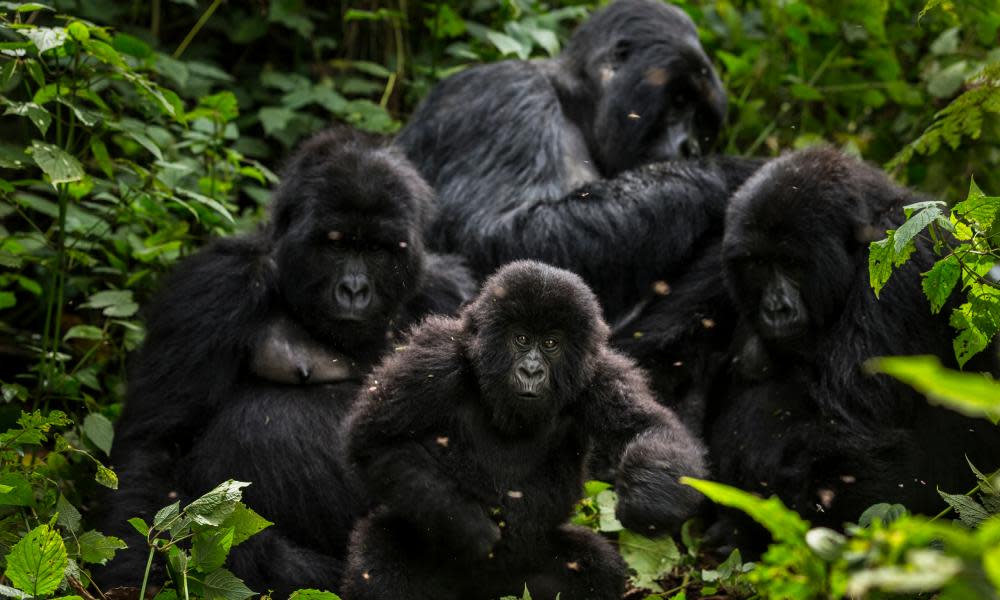Eight rangers killed in grim week for wildlife protectors

Eight wildlife rangers have lost their lives in four separate countries, in a week that highlighted the numerous hazards rangers face in protecting the world’s wild lands and species.
“It’s a tough week when we lose eight of our ranger family; some to poachers’ bullets and some to the other dangers that come with the territory,” said Sean Willmore, founder and director of the Thin Green Line Foundation, which supports widows and children of rangers killed in the line of duty.
“We are becoming accustomed to this sad reality. But we need the world community’s support to help provide training and equipment to prevent deaths and to support families left behind.”
On 17 February, a young ranger with the Kenyan Wildlife Service was shot dead by elephant poachers in Tsavo national park.
The ranger and a colleague were out on a de-snaring patrol when they came upon the tracks of known elephant poachers. The poacher ambushed the pair, killing one – officials have not yet released his name.
The other ranger pursued the poachers and reportedly killed one of them.
These particular poachers have become well known in Tsavo, which has one of the largest populations of savannah elephants in the world. A week earlier, the same group had shot and wounded an elephant, but abandoned it when they realised community scouts were on their tail. The elephant eventually perished from its wounds. Park rangers removed the animal’s ivory and sent it to Nairobi to keep it out of the black market.
The slain ranger was in his twenties and leaves behind a young wife. He had only recently graduated from the Kenya Wildlife Service Field Training school in Manyani.
“The threats [to rangers] are escalating and with that there is a corresponding need for increased support, which in many cases does not materialise.” said Chris Galliers, the chair of the Game Rangers Association of Africa and the International Ranger Federation African representative.
He added that rangers in Africa are working under difficult conditions with “reduced capacity, fatigue, and possibly the need for additional skills.”
“It creates a situation where cracks will begin to appear,” he noted.
Not all ranger fatalities are at the hands of poachers. Three rangers also died last week in the Democratic Republic of the Congo when their speed boat capsized in Virunga national park.
According to chief park warden, Jean Pierre Jobogo Mirindi, nine rangers were patrolling Lake Edward when a heavy wind capsized the boat. Local fishermen rescued six of the rangers, but three of them drowned after foggy conditions complicated the rescue: Bwambale Nyamikenge, Katu Mumbere, and patrol chief, Kasereka Mwana Zaire.
Virunga national park is home to a quarter of the world’s remaining mountain gorillas. But militias and political instability have also made it one of the most dangerous parks in the world for rangers: 150 rangers have been killed in the park during the last ten years.
Another three rangers were killed in Central African Republic last week, but no additional details were available on the incident.
Finally, in India, a 28-year-old forest ranger passed out while trying to stamp down flames in Bandipur national park. Officials say Murigeppa Tammangol died from asphyxiation, burns and brain damage. Tammangol leaves behind a wife and a three-month-old baby.
The local press blamed the fires on “miscreants” from nearby communities. But Bandipur national park is also in the midst of a drought, with two years of unusually dry conditions.
Three other people were injured in the blaze and are recovering in the hospital.
Galliers said that eight rangers dying in one week was a “high” number, but given the challenges facing rangers, “it may be a case of when and not if such a number of rangers could be killed [again] in such a short space of time”.
The Thin Green Line estimates that around 100 rangers are killed in the line of duty every year – approximately two per week.
To support rangers and their families, visit the Thin Green Line Foundation website.
This piece is part of a year-long series on Elephant Conservation – email us at elephant.conservation@theguardian.com

 Yahoo News
Yahoo News 
